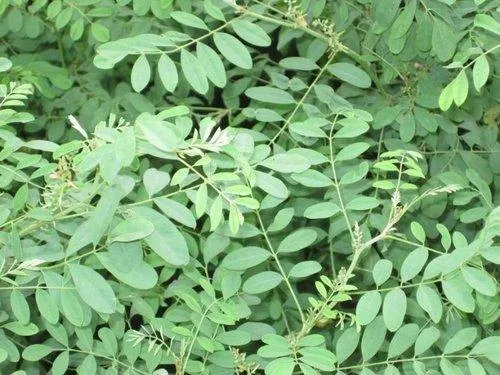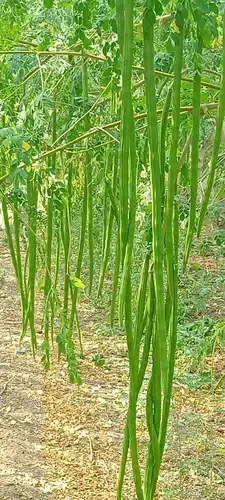Avuri (Indigo Seeds)
Quantity: 5 grams
Avuri (Indigofera tinctoria) is a plant of great historical, cultural, and economic significance. From its role in ancient trade to its current resurgence in sustainable practices, avuri continues to be a valuable resource. Its applications in natural dyeing, traditional medicine, and sustainable agriculture highlight its versatility and enduring importance. The rich blue dye it produces not only colors fabric but also weaves together the stories and traditions of countless communities across the world.
Out of stock
Growing Avuri (Indigofera tinctoria), also known as true indigo, requires specific conditions to thrive. Here’s a guide on how to grow this valuable plant:
1. Climate
- Temperature: Avuri thrives in warm, tropical, and subtropical climates. The ideal temperature for its growth ranges from 20°C to 35°C.
- Rainfall: It prefers regions with moderate to high rainfall, typically between 600 to 1500 mm annually. However, it can tolerate drought conditions once established.
2. Soil
- Type: Avuri grows best in well-drained sandy loam soils. It can tolerate a variety of soils, including slightly acidic to neutral pH levels (5.5 to 7.5).
- Fertility: While it can grow in moderately fertile soils, adding organic matter or compost can enhance growth. The plant’s nitrogen-fixing ability also improves soil fertility.
3. Planting
- Propagation: Avuri is usually propagated through seeds. Seeds should be soaked in water overnight to improve germination rates before sowing.
- Sowing Depth: Seeds should be sown at a depth of about 1 to 2 cm.
- Spacing: Plant seeds or seedlings 30 to 60 cm apart in rows spaced 45 to 60 cm apart. This spacing allows for adequate air circulation and sunlight penetration.
4. Watering
- Irrigation: Avuri requires regular watering during its initial growth stages, especially if grown in areas with less rainfall. Once established, it can tolerate dry conditions due to its deep root system.
- Drainage: Ensure the soil is well-drained to prevent waterlogging, which can lead to root rot and other fungal diseases.
5. Fertilization
- Organic Fertilizers: Incorporate compost or well-rotted manure into the soil before planting to provide essential nutrients.
- Nitrogen Fixation: As a legume, Avuri has the ability to fix nitrogen in the soil through its root nodules, reducing the need for additional nitrogen fertilizers.
6. Weeding
- Weed Control: Regular weeding is necessary during the early growth stages to prevent competition for nutrients and water. Mulching can also help suppress weeds.
7. Pest and Disease Management
- Pests: Avuri is relatively pest-resistant, but it may occasionally suffer from aphids, leafhoppers, and caterpillars. These can be controlled with organic insecticides like neem oil or by encouraging natural predators.
- Diseases: Common diseases include root rot and leaf spot, which can be managed through proper watering practices and crop rotation.
8. Harvesting
- Timing: The leaves of Avuri can be harvested about 3 to 4 months after planting, once the plants have reached a height of about 1 to 1.5 meters.
- Method: Harvest the leaves by cutting the plants back to about 15 to 30 cm above the ground. This allows the plants to regrow and be harvested multiple times per year.
- Yield: On average, Avuri can be harvested 2 to 3 times per year, depending on growing conditions.
9. Post-Harvest Processing
- Indigo Dye Extraction: The harvested leaves are soaked in water to ferment, then stirred and oxidized to release the indigo pigment. The liquid is then left to settle, and the indigo is collected as a paste after the water is drained.
10. Crop Rotation
- Soil Health: Rotate Avuri with other crops, such as cereals or vegetables, to maintain soil health and reduce the build-up of pests and diseases.
Summary:
Avuri (Indigofera tinctoria) is a hardy plant that can be grown in a variety of soil types and climatic conditions. With proper care, including adequate watering, fertilization, and pest management, Avuri can be a sustainable crop, contributing to soil fertility and providing a valuable natural dye. Its ability to grow under diverse conditions makes it a versatile addition to any garden or farm interested in sustainable agriculture and natural dye production.
| Weight | 15 g |
|---|







Reviews
There are no reviews yet.